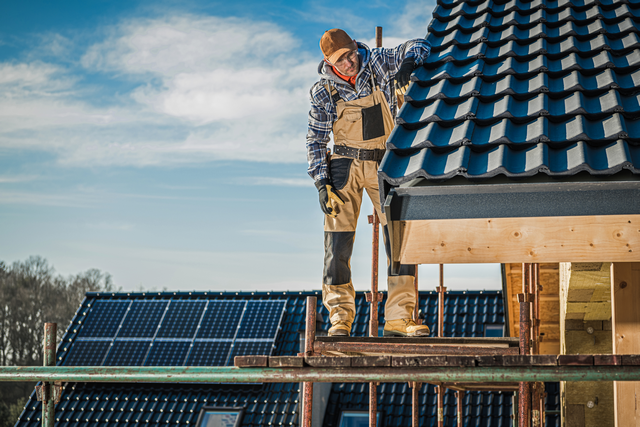The construction industry is poised for significant changes in 2024, driven by innovations in materials, processes, and technologies. This evolution is helping builders meet growing demands for sustainability, efficiency, and quality assurance. From advanced modular techniques to enhanced quality testing, these trends are transforming how construction projects are designed, executed, and maintained.
The Future of Construction
Sustainability is now a cornerstone of construction. Builders are increasingly incorporating eco-friendly materials to reduce their environmental footprint and adhere to stricter regulations.
- Recycled Steel: Known for its strength and recyclability, steel is central to sustainable construction. Modern steel suppliers now offer high-recycled-content steel, produced using energy-efficient processes. These innovations reduce emissions without compromising quality.
- Eco-Friendly Alternatives: Materials like carbon-neutral concrete and reclaimed wood are gaining popularity. These sustainable options allow builders to create structures that are environmentally responsible and durable.
Advanced Technologies
Technological advancements are reshaping how construction projects are planned and executed.
- Building Information Modeling (BIM): BIM improves collaboration among stakeholders, ensuring precision and reducing errors. It also supports material optimization to cut waste.
- Industrial Ovens for Material Testing: Reliable materials are critical for construction success. Processes like the heat treatment of plastics or burn-in testing of electronic components—conducted in industrial ovens—ensure that components meet high-performance standards before use.
Modular and Prefabricated Construction
Modular construction is revolutionizing the industry, offering faster project timelines and reduced costs.
- Prefabricated Steel Components: Produced in controlled environments, these components ensure consistent quality. Modular construction also minimizes on-site waste, enhancing its eco-friendly appeal.
Energy Efficiency and Temperature Control
Energy efficiency is a key focus for the construction industry in 2024.
- Temperature Uniformity: Precise temperature control is vital for energy-efficient buildings. Industrial ovens used during manufacturing processes help ensure this uniformity, improving the durability of materials.
Sterilization and Quality Assurance
As the construction industry integrates more advanced materials, ensuring their reliability is essential.
- Dry-Heat Sterilization: A critical process for healthcare and manufacturing-related construction projects, dry-heat sterilization eliminates contaminants without moisture, protecting sensitive materials.
- Burn-In Testing: Ensuring the reliability of electronic components through burn-in testing reduces potential failures, enhancing safety and durability in construction.
FAQs
Why is sustainability important in construction?
Sustainability reduces the environmental impact of construction, improves resource efficiency, and helps builders meet regulatory requirements. Materials like recycled steel and carbon-neutral concrete contribute to eco-friendly projects.
How does technology improve construction processes?
Technologies like BIM, drones, and industrial ovens streamline construction by enhancing precision, reducing waste, and ensuring material reliability through processes like heat treatment and burn-in testing.
What are the benefits of modular construction?
Modular construction reduces costs, speeds up timelines, and minimizes on-site waste. Prefabricated steel components ensure consistent quality and support sustainable building practices.
What is the role of industrial ovens in construction?
Industrial ovens are used to ensure material reliability through processes like heat treatment, burn-in testing, and temperature uniformity checks. These processes enhance the durability and performance of materials.
How does dry-heat sterilization apply to construction?
Dry-heat sterilization is crucial for materials used in healthcare and manufacturing-related projects. It ensures sterility without introducing moisture, protecting sensitive components like contact lenses or medical-grade plastics.
Final Thoughts
The construction industry in 2024 is evolving rapidly, driven by sustainability, advanced technologies, and enhanced quality assurance practices. Reliable steel suppliers and innovative processes such as heat treatment and burn-in testing are helping builders meet the demands of modern construction. By embracing these trends, the industry is paving the way for a more efficient, sustainable, and resilient future.







